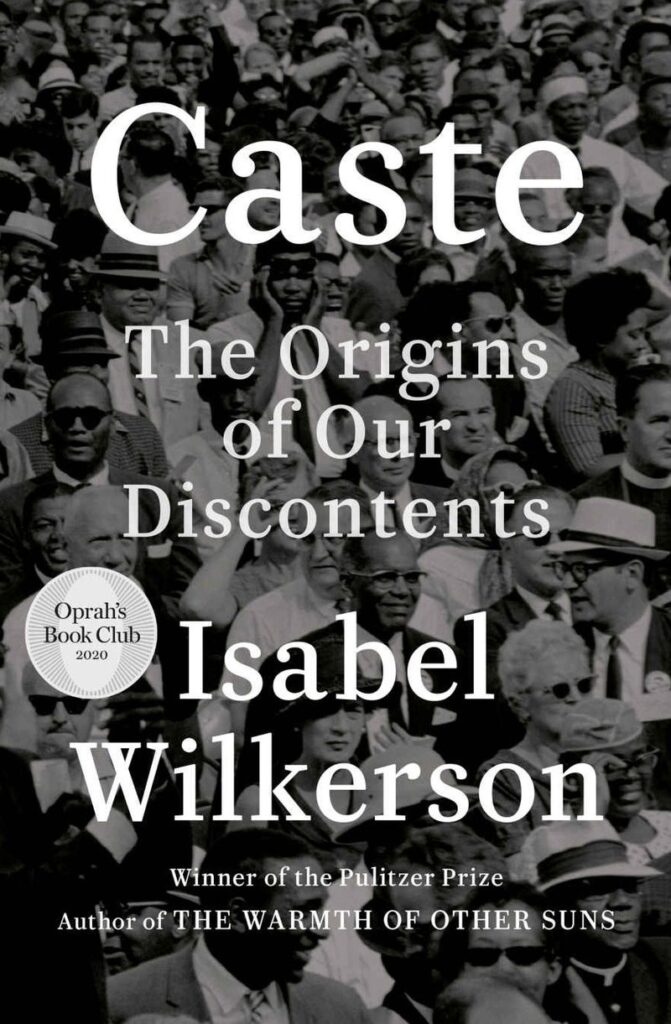Continuing the conversation on race
Former Black Cultural Center colleagues to host a Feb. 6 international discussion on Isabel Wilkerson's 'Caste: The Origins of Our Discontents'

America’s racial hierarchy functions like a caste system somewhat like those in India and Nazi Germany.
While this assertion from Isabel Wilkerson’s acclaimed “Caste: The Origins of Our Discontents” is not necessarily new among civil rights historians, the 2020 book debuted at the perfect time to contribute to the national dialogue on racial inequity.
Jolivette Anderson-Douoning and Casarae Abdul-Ghani hope this conversation will continue among their students, along with those from outside their university communities. So, this Saturday, Feb. 6, the two former colleagues at Purdue’s Black Cultural Center will provide one such opportunity to connect – through an international conversation about “Caste” that will take place via Zoom and will be free and open to all.

“We wanted to invite our students because we know that they are having these conversations in their own circles, and so we wanted to make sure that it’s an open space for students to be able to connect with other people, but also to discuss, from their perspective, these ideas that are shaping their consciousness,” said Abdul-Ghani, assistant professor of African American Literature and Studies at Syracuse University.
Anderson-Douoning described such opportunities for open discussion and learning as “organic teaching,” noting that the overseas participants’ perspectives will only add further depth to the conversation. She has invited instructors, their students, and community members from the United Kingdom – including Professor Kehinde Andrews and students from Birmingham City University and “Lee Jasper’s Drive Time” viewers in Brixton – to join the discussion with American students from Purdue, Jackson State University, and St. Michael’s College in Vermont.
“I thought these were important conversations that were going on in these spaces, and how could we educate our students at Purdue so that they could understand what is happening in the world and also see the patterns and commonalities that are going on with the human experience that we’re all having under COVID and under quarantine and all the other things that are taking place?” said Anderson-Douoning, an American Studies PhD candidate at Purdue who teaches courses titled American and the World (in American Studies) and Introduction to Women’s, Gender, and Sexuality Studies and Women of Color in the U.S. (in Women’s, Gender, and Sexuality Studies).
Saturday’s event hosts will invite participants to share important passages from the text and explain why they find them meaningful. The resulting conversations should be enlightening, Abdul-Ghani predicted.
“It’s kind of like a popcorn effect where one person starts off with a passage and then they speak about it and there’s a full-length discussion and someone else comes in and adds to it,” said Abdul-Ghani, who in 2015 completed a doctorate at Purdue in English with a concentration in African American Studies.
Pulitzer Prize winner Wilkerson’s book was one of the most well-reviewed releases of 2020, appearing on best-seller lists and as a selection for Oprah’s Book Club. Last year, Netflix announced that Oscar-nominated “Selma” director Ava DuVernay would write, direct, and produce a dramatic adaptation of “Caste” for the streaming service.
Abdul-Ghani described the book as an accessible introduction to arguments that race scholars have made for years.
“For someone who doesn’t study race daily or who may not be an educator or someone who is in that academic realm, it’s very easy to digest and process,” Abdul-Ghani said. “And so, it’s a starting point to inquire about other books to engage with, to compare.”
“Caste” is actually the third book that Anderson-Douoning and Abdul-Ghani will have covered in quarterly virtual discussions. They previously addressed the practice of redlining in a discussion of Richard Rothstein’s “The Color of Law: A Forgotten History of How Our Government Segregated America” and contemplated economic reparations for U.S. descendants of slavery in a conversation about William Darity and A. Kirsten Mullen’s “From Here to Equality: Reparations for Black Americans in the Twenty-First Century.”
In each case – including the caste system that Wilkerson described – the selected books covered systems of racial suppression that gravely impacted Black citizens’ quality of life.
“We say race is a social construct and it’s something that society has created,” Anderson-Douoning said. “Well that may be true, and it is true, but why are we still having these problems? Why can’t we just get rid of race? And largely the argument is it’s because of caste. There are these hierarchies of human division and difference, and we tend to treat each other in certain kinds of ways based off of those differences.
“And so even if you eliminated race as a category, you’re still going to have, ‘I see you and you look different than I, and the way you look says that you come from a certain place or certain group of people.’ ”
The hosts believe that open and honest conversations like the one that will take place Saturday can be starting points for change. By listening to classmates’ and fellow participants’ perspectives with open minds, the next generation’s leaders will be better prepared to cast aside the obstacles that slowed racial progress across generations and potentially create a more equitable society for all Americans.
VIEW THE CONVERSATION
The Zoom discussion of "Caste" is available to watch online here:
Use passcode chEF4a$#